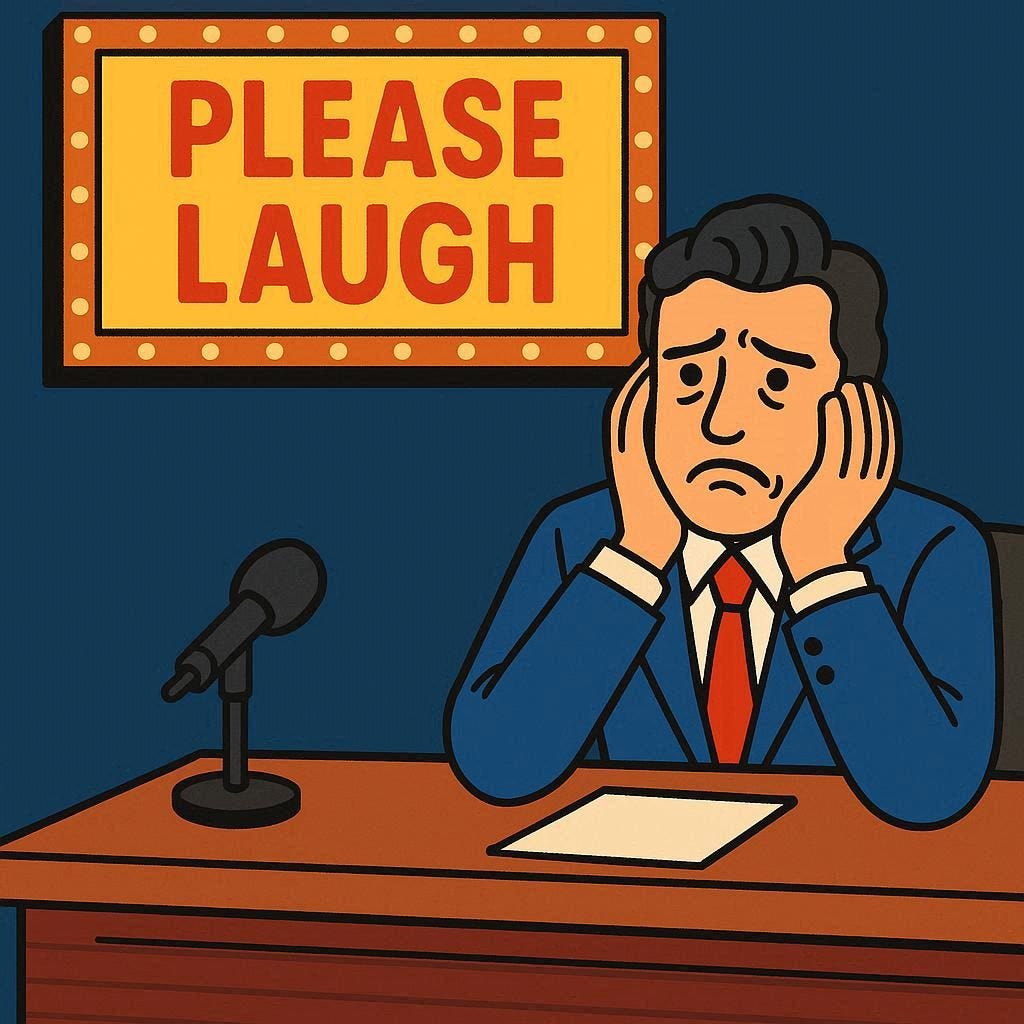The Decline of Late-Night Satire
Why playing it safe is dangerous
Late-night satire was once the gold standard for critiquing power.
In the 2000s, a young Jon Stewart was thriving on The Daily Show. Perhaps he had a liberal bias, but he critiqued insanity on both sides. Stewart kept his audience sane in times of tragedy, war, and corruption.
Although back on the Daily Show, he never quite returned to his former glory. He still has his moral compass, but like many of his colleagues, he is now more partisan and less sharp.
This begs the question: what happened?
The Daily Show got its very own spinoff.
The Colbert Report, hosted by Stephen Colbert, was equally brilliant.
Both shows cut straight through the fog of modern discourse. Stewart pointed out political hypocrisy and institutional decline. Colbert parodied conservative pundits, illustrating how partisan the media landscape had become.
They performed a crucial social role and were widely appreciated for it.
However, something has changed.
Nowadays, it seems as if late-night satirists no longer challenge their audience’s views but affirm them. But when they do play it safe, they dull their wit and lose their value. They ultimately end up preaching to the choir, providing nothing new or interesting.
This is best described as the safety trap.
It did not happen overnight. Culture changed. Along with it, audience expectations.
Satirists fell into the safety trap because they internally caved to external pressure.
They could not weather the storms of a new climate.
The rise of Trump was a defining moment.
He polarized the political landscape and forced even comedians to take sides. As audiences yearned for moral clarity, they demanded answers: “Are you for him, or against him?”
As satirists could only critique one side or the other, they turned partisan. Viewers wanted affirmation of their beliefs, and late-night hosts supplied it.
This made them increasingly dull.
COVID only made things worse.
The crisis bred feelings of moral urgency. This fed into self-censorship (and even preachiness) over COVID measures. Satirists became even more careful, as audiences got used to never being rubbed the wrong way.
Late-night was gradually morphing into guided group therapy.
Woke activism would become the death blow.
As the masses turned overly sensitive, satirists turned overly senseless. Since one misstep could cancel them, they grew too cautious to ever say anything at all. Self-censorship turned into a full-on muzzle.
Networks, fearing backlash, were incentivized to reward pleasantry over wit. The result was complete intellectual impotence.
Satirists sacrificed their edge to secure their careers, only stepping deeper into the safety trap.
The viewers’ oversensitivity is not solely to blame.
Pressure may rise on the satirist, but caving to it is always his choice. When it is hardest to speak truth to power, it is precisely most needed. But that requires bravery.
During COVID, Stewart still challenged mainstream thinking by discussing the lab leak theory on The Late Show. Colbert, however, fully embraced the prevailing narrative: promoting the vaccine by dancing with needles.
Stewart kept some ability for freethought; Colbert fully leaned into the machine.
But some made it out of the safety trap.
Bill Maher still challenges both woke-left and far-right lunacy on Real Time. He did not let moral outrage slow him down. South Park never stopped: lampooning Trump, transgender athletes, and everything in between.
They demonstrated that satire is still possible if you commit to it. Hence, failing satirists were not forced to betray their craft; they had a choice.
The distinguishing factor is courage.
Most late-night comedians fell into the safety trap.
Polarization, crises, and moralization triggered a survival of the wittiest. Only those brave enough to make fun of everyone kept their integrity. Others are now stuck in a vicious cycle of toothlessness.
Without the willingness to offend, the satirist sacrifices the essence of his craft: irreverence. He then loses his value, which proves fatal over time.
It is tragic, but caused by himself.
The decline of late-night satire is a real loss.
But it is not fatal to satire itself. Real Time and South Park prove that power can still be ridiculed on American TV. And on the internet, a new generation of political satirists is forming.
The recipe for good satire is everlasting: speak truth to power, but no lazy moralizing. Be funny, not preachy.
We should reward it when we see it.



